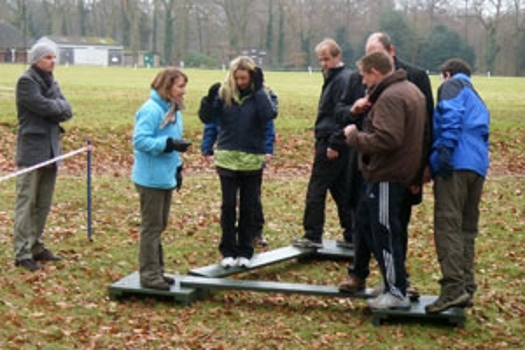The challenge
Construction and engineering projects can take years to complete and their success depends heavily on the abilities of the project manager in charge. They need to be able to get the best from a complex web of stakeholders - planners, designers, engineers and clients.
"Effective project management can have the most significant influence on whether a project is a success or not," says Jeremy Galpin, group skills and development manager at Costain, the 140-year-old international engineering and construction group.
Even in a recession, it is tough for construction companies to find the skills they need in project managers and in 2007, Costain decided to make the most of its existing talent by developing its own project management academy.
The programme
Costain teamed up with business psychologists Crelos to profile successful project managers to identify their precise combination of technical knowledge, competence and behaviours, as well as the optimum phases of career progression. "We wanted to build an accurate picture of what 'good 'looks like," says Galpin.
The research helped to set benchmarks in four main areas - behaviour, personality, motivation and cognitive ability - and an academy was set up to span nine career stages. It is available to anyone involved in project management from graduate up to project director-level. Participants also have to be signed off by and supported by their MD.
The first phase is assessment - of career aspirations, technical abilities and project management knowledge and experience - using one-to-one interviews and 360-degree feedback. Behavioural development gets as much emphasis as experience and technical skills, with psychometric testing and a civil emergency simulation at a special development centre. Each participant creates a personalised development plan showing how to get to the next level via specific on-the-job assignments. They also have coaching, mentoring and off-site development workshops. Participants receive targeted professional qualifications through the Association of Project Managers. Behavioural change is measured by 360-degree feedback and project-level metrics including looking at as profitability, customer service, quality and accident frequency rate.
The results
Participants' project management knowledge, measured using the Association of Project Managers' scoring system, has increased by 19%. The company has shown its commitment to the project by investing in a second wave of funding. The programme has already influenced Costain's recruitment decisions and succession planning process.
THE HR DIRECTOR'S VIEW
Jeremy Galpin, is group skills and development manager at Costain. Besides wanting to improve project performance and to drive value for clients, the company also wanted to identify and develop effective project managers, says Galpin. "Project management talent is very difficult to find and to recognise. We did extensive analysis to identify what 'good' looks like, covering experience and technological competence. But we also looked at cognitive ability for both the current role and the next one. We have applied the model to the recruitment process and, as far as I know, we are unique in applying the approach to the whole talent cycle." The academy programme is about key drivers not just key outcomes, he says. It is a step-by-step approach to project management knowledge and is about individuals' own drive to progress. "So far," he adds, "the application process has been open to everyone connected with project management but we are extending that to commercial planners and IT. We are even looking at expanding it to our supply chain."
THE EMPLOYEE'S VIEW
John Azzopardi is a senior site manager at Costain. Azzopardi has been with the company for six years and was very keen to make the step from "being comfortable managing myself to becoming a confident project manager". He adds: "I'd worked elsewhere first so I didn't start on the graduate training programme here, but, although some companies don't have any form of training in place other than graduate schemes, this is open to anyone." He describes how the application process started with an online assessment of his base-level aptitude and an evaluation of his knowledge. "I then went on to the development centre in June last year. I gained a lot of insight into the global terminology of project management. I also learned a lot that surprised me," he admits. "I scored relatively low on some things I'd always thought I was quite good at." He has one recommendation - to make contact and feedback more regular immediately after the academy. "It would help to sustain the buzz you get while at the academy once you are back in your everyday job."








